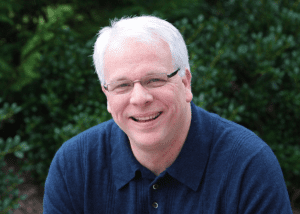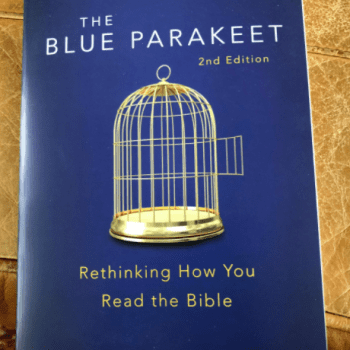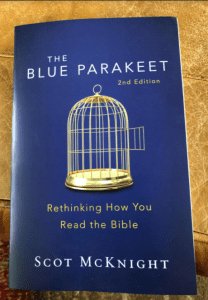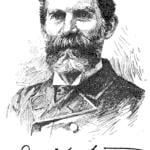By Vonda Dyer
It’s “Giving Day” in north Texas, and I’m celebrating what our agency calls #minervasoul, because we have the privilege of supporting clients who want to end poverty as we know it through innovative higher education, others who want to eradicate human trafficking in our city, some who want to tangibly love people better by the way that they do business, and yet others who are lifting people out of homelessness. The one thing they all have in common is that they want to make the world where they live and work a kinder, more generous place to be. I’m following the North Texas generosity online as I send last emails and make sure the kids and grandparents have what they need before my husband and I embark on a two-week journey through Greece to experience some of the places where God used the apostle Paul to build and spread the Church.
I find it no coincidence that I am typing these words with a few hours of sleep and a burning in my heart to breathe the air, see the places and connect my minds-eye back to the essence of what drove Paul to preach with such fervor and urgency about the glorious life that Christ would bring to this dusty earth and into our hearts.
This departure and pilgrimage is met with the announcement of the Willow Creek Advocacy Group and a process that still lies in the spaces between what is right and true, what lies in a man’s heart and what happened with one of the most influential and powerful men in global church leadership in my lifetime. He was both boss and friend, pastor and human. We watched this revelation of abuse of power unfold before our very eyes, and I have never wept as much as I have in this last year over the depravity of man, even well-intentioned man, and the tornadic destruction it wields in its wake. So as I have packed, settled work accounts, kissed my children one last time, I am reflecting on Paul’s desire for us to be free from all of the earthbound things that tend to bind us. I am grateful for my new “online church” with its beautiful, colorful, rag tag community of believers and doubters, advocates, researchers, doctors, lawyers, pastors, ministers and faithful prayer warriors that have gathered to see this set right. I’m writing this in response to the many requests that have flooded my cell phone over the last few days. I have so many thoughts, but no conclusions. What I know for sure is that this Willow Creek Community Church crisis that has become part of my life in various ways for more than two decades, still makes me burn, like Paul, for a fully biblically-functioning church here on earth.
As of yesterday, I want to thank these four individuals that were announced publicly for stepping forward to begin a process that I hope and pray will be redemptive for all involved. From all I read, they seem to be a great group of people. It is my desire to honor and respect the process that the independent Advisory Council offers, unless they give me reason to distrust their motives, process or actions in how this is handled.
This investigation is a defining moment for Willow Creek and for the Evangelical Church at large. It has the opportunity to reveal, highlight, and model how the bride of Christ can be led by servant leaders who allow the indwelling Christ to define their leadership patterns, behaviors, relational patterns, emotional health, and organizational decision-making, once again.
This situation has created great distrust by the way in which the Willow Creek leadership mis-handled my situation alone, let alone all the others. This situation has had severe consequences for me personally and for all involved. It needs to be resolved, for the gross injustice that has occurred to be made right, for the sin that has caused such destruction to be revealed and dealt with, and for the unhealthy power structure that has damaged so many to be removed and rebuilt biblically.
I believe that Bill’s actions and the Willow Creek debacle will be studied for many years to come. Willow Creek and the Willow Creek Association’s current and future response to abuse within the church is critical because of their national and global influence on church leadership. These findings and how they are dealt with have the potential to provide a model for what is good and acceptable for leaders and churches going forward. This is a great opportunity for the church to hit the reset button on Christ-centered, biblical relational and organizational leadership.
The investigation into Bill Hybels’ actions regarding his abuse of power and sexual misconduct is a huge task. It requires legal, spiritual and relational integrity for the Advisory Group chosen to investigate him. I cannot confirm whether the Advisory Council has the skills to oversee the proper investigation, as I’m not aware of their prior experience with oversight of weighty investigations regarding abuse of power and sexual misconduct. That said, someone must step up to lead a process that calls for clarity, repentance, and ultimate healing for everyone involved.
I choose to believe that God is in control of the situation and has brought it to bear for the purpose of refining and redefining Biblical leadership for the modern-day church, to bring purity and holiness to the Bride of Christ.
Here are a few answers to questions I have been receiving. They leave me with more questions than answers, at this point:
- I have not been contacted by anyone about the particulars of the pending investigation, the intended process, or the makeup of the Advisory Council, but I hope that I can trust this council in a way that I haven’t been able to trust Willow Creek leadership so far. Their actions will determine my level of trust and involvement.
- I do not know whether they will “look into actions themselves” or whether they will hire professionals with significant experience and expertise in these matters to truly investigate these serious allegations with a completely unbiased approach.
- I do not know if they will make the findings public so that the heart of the matter may be revealed in full.
- I do not know if they will go back in time to review all known infractions with regard to Bill’s choices, from the beginning of his ministry.
- I do not know if the grievous infractions will simply be “noted so that the church can move on”, or if the abuse of power that led to a multitude of other unjust, unbiblical and destructive behaviors will be brought to light and rectified, paving the way for a new model for redemptive leadership.
- I do not know if they will immediately go to the most obvious places to look, with regard to this investigation – that being the emails, files, texts, phone calls going back as far as 2014 with the initial allegations of a 14-year affair, all the way to the most recent woman investigated, and including his communication with female leaders, including Heather Larson, into present day. The women in the news media outlets have already had their stories thoroughly corroborated and vetted by reporters, in order to present truthful accounts of their allegations. Simply investigating the women again will not be thorough nor sufficient to uncover what has been hidden. There also needs to be a safe place created for others to come forward, if they have a story, without fear of reprisal, shaming or further victimization. I do not know if there are plans for this.
- I do not know if the investigation will include inviting Bill into a process of biblical repentance, for his own sake, the sake of his family, his church, his organizations and for the sake of all who at one time traded their sinfulness for the fullness of Christ, as Bill has preached this most of his life. I pray for this kind of restoration.
- I do not know if the investigation will go beyond the women’s stories and Bill’s misconduct, to the issues of how the allegations and process were mishandled by Willow Creek and WCA leadership, and to the systems that protected him and itself, and allowed all of this to happen.
If Bill is unrepentant, he will stand before the world, who, I believe, will consider his unwillingness to cooperate with investigations as an admission by default. He must live with the consequences of his choices. We may always wonder why he has been unwilling to open his life to being investigated fully, accurately, and thoroughly, for the sake of integrity and his own spiritual well-being, and for the healing of those he wounded.
The church has a bright future because the sovereignty and grace of God allows it to flourish in spite of man’s choices. But the church is most glorious when she radiates in truth, with the full expression of Christ, without blemish, living and moving about in this world, expectant for the kingdom to come.
If this investigation is done well, it “will sift wheat from chaff” in leadership structures of the church and encourage that which remains to thrive, for the sake of the gospel. The Evangelical Church must bring Jesus back to the forefront of spiritual leadership and fully recognize him once again as the Head of the Church. The Evangelical Church must address the issue of power abuse and sexual abuse running rampant in “successful” churches. Instead of being in the headlines for covering up misconduct and abuse and giving standing ovations to abusers, let’s be known for leading the way toward repentance and health, for the church of the future.
“So Christ himself gave the apostles, the prophets, the evangelists, the pastors and teachers, to equip his people for works of service, so that the body of Christ may be built up until we all reach unity in the faith and in the knowledge of the Son of God and become mature, attaining to the whole measure of the fullness of Christ.”
Ephesians 4:11-13


















